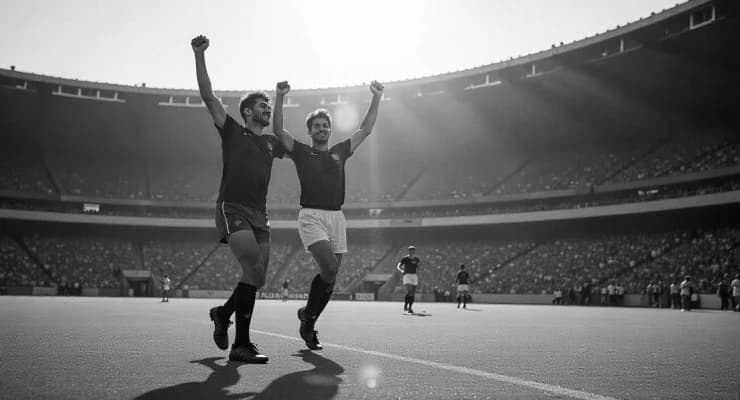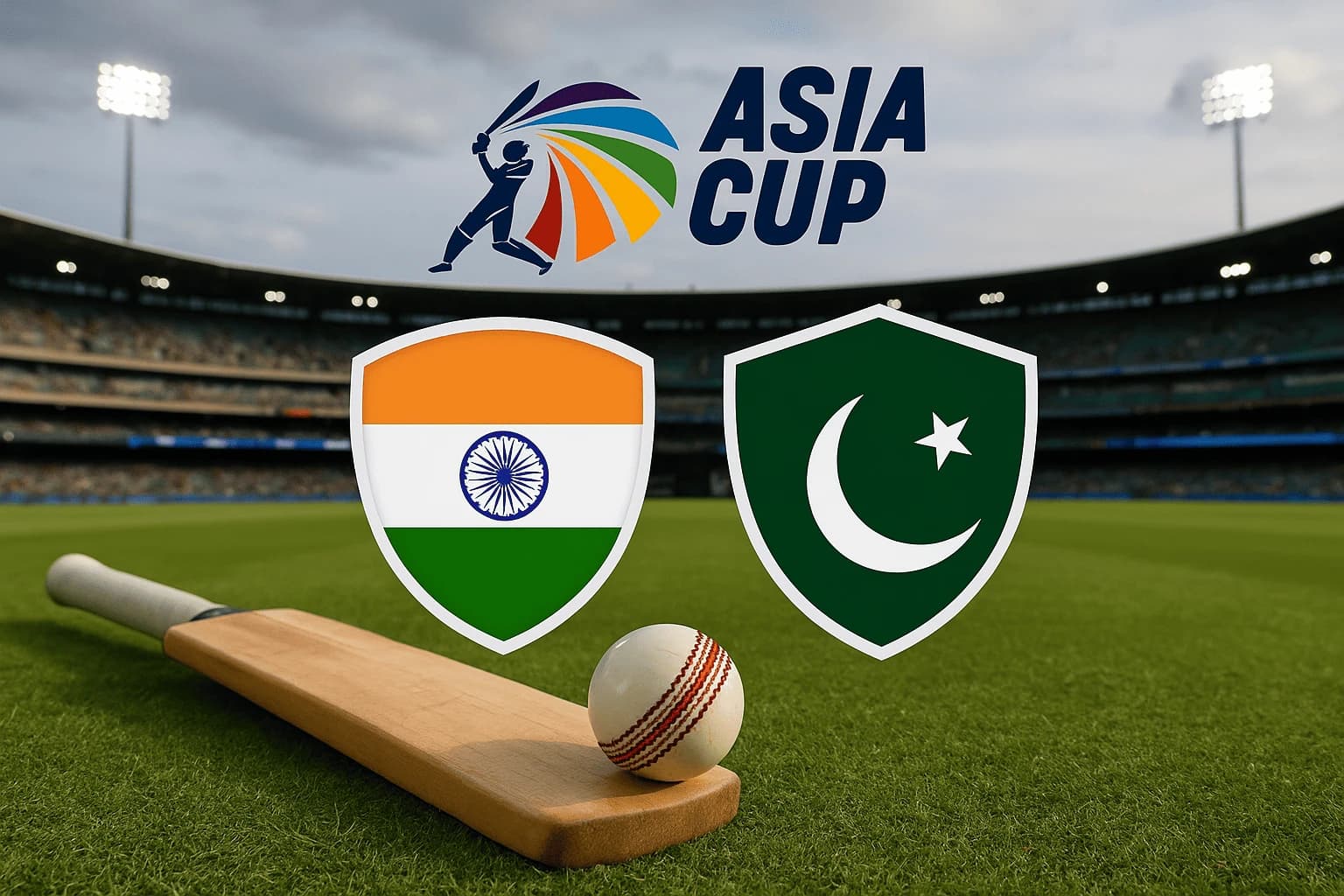© 2025 Roz UpdatesbyTETRA SEVEN

* All product/brand names, logos, and trademarks are property of their respective owners.
Since gaining independence in 1947, Pakistan has proudly participated in the Olympic Games, marking its presence on the world's most prestigious sporting stage. From the early post-independence years to the highs of gold medal glory and the current aspirations of revival, the story of Pakistan at the Olympics is not just a chronicle of medals and statistics — it is a tale of resilience, national pride, and extraordinary individual achievements.
The country's Olympic journey began at the 1948 London Games, only a year after its birth. Despite limited resources and organizational experience, Pakistan's debut was a symbol of ambition. Over the decades, Pakistani athletes have etched unforgettable moments into Olympic history — whether it's the unmatched dominance in field hockey, the valor of boxers and wrestlers who defied the odds, or modern-day heroes like Arshad Nadeem who rekindled hope by conquering the global stage.
Yet, this journey hasn't been linear. After a golden era that saw Pakistan emerge as a field hockey superpower, the nation faced a steep decline in performance and medal wins, with shifting priorities and structural sports issues affecting athlete development. But hope has never faded. From small towns and humble backgrounds, new athletes continue to rise, keeping the Olympic dream alive.
In this blog, we’ll revisit the most defining moments of Pakistan’s Olympic history, explore the achievements of national heroes, analyze the challenges that led to a performance decline, and discuss the current revival efforts and future prospects, especially with eyes on Paris 2024. These stories are not just about sports — they are reflections of Pakistan’s undying spirit.
The golden era of Pakistan at the Olympics is inextricably linked to its dominance in field hockey — a sport that became a symbol of national pride and international acclaim. Between 1956 and 1984, Pakistan’s men’s hockey team was a formidable force, earning multiple Olympic medals and revolutionizing the sport with flair, speed, and skill.
Pakistan clinched its first Olympic medal in 1956, a silver in Melbourne, narrowly losing to India. This marked the beginning of a legendary rivalry and an era of brilliance. In 1960, Pakistan made history by winning its first Olympic gold in Rome, defeating India 1–0 in a dramatic final, breaking India’s longstanding hockey hegemony. It wasn’t just a sports victory — it was a statement of national identity and excellence.
Further triumphs followed: gold medals in 1968 (Mexico City) and 1984 (Los Angeles), and silver in 1964 (Tokyo) and 1972 (Munich), alongside a bronze in 1976 (Montreal). These years established Pakistan as the most successful Asian nation in Olympic field hockey history.
Beyond field hockey, Pakistan saw notable success in wrestling and boxing during the same era. Mohammad Bashir became the first Pakistani wrestler to win an Olympic medal — a bronze in Rome 1960. His technique and strength paved the way for future wrestlers to pursue Olympic glory.
In boxing, Syed Hussain Shah earned Pakistan a bronze in Seoul 1988, showcasing talent from Karachi’s Lyari district — a hub of grassroots sports. These athletes competed with minimal support but immense determination, often training in rudimentary conditions.
Abdul Rasheed Jr. was one of the most prolific goal-scorers, part of three Olympic medal-winning teams.
The 1972 Munich final against West Germany remains iconic, despite Pakistan narrowly missing gold.
Shahbaz Ahmed, although more prominent in later years, symbolized the hockey legacy that began in this era.
These decades created national heroes, inspired future generations, and set a high benchmark for sports in Pakistan.
In the modern era, no moment has reignited Pakistan’s Olympic dreams like Arshad Nadeem’s gold medal in the javelin throw at the 2024 Paris Olympics. Arshad not only won gold — he made history by becoming Pakistan’s first-ever Olympic medalist in athletics, and the first to break the 90-meter barrier for the country.
Hailing from Mian Channu, a small town in Punjab, Arshad’s journey is one of pure perseverance. With minimal access to world-class training facilities, he honed his craft through grit and dedication. His victory is not just a personal triumph but a beacon of hope for millions of young Pakistani athletes dreaming big against the odds.
Arshad's feat received global praise and marked a significant shift — showcasing that Pakistan could excel beyond its traditional sports, and that individual excellence can emerge with the right support and belief.
Boxing and wrestling, though less spotlighted than hockey, have also delivered iconic Olympic moments for Pakistan:
Mohammad Bashir: Bronze in wrestling at Rome 1960 — the country’s first individual Olympic medalist.
Syed Hussain Shah: Bronze in boxing at Seoul 1988 — a fighter from Karachi’s Lyari, whose win was a triumph of raw talent and relentless spirit.
These athletes competed in challenging environments, often without modern equipment or international exposure. Yet, they proved that skill and willpower could overcome infrastructural limitations.
While no Pakistani woman has yet won an Olympic medal, their presence alone on the Olympic stage has been a monumental achievement:
Shahida Parveen became Pakistan’s first female Olympian in 1996 (Atlanta).
Najma Parveen (athletics) and Rabia Ashiq (middle-distance running) have represented the country in recent Games, defying societal constraints.
Mahoor Shahzad, a badminton player, competed at Tokyo 2020, symbolizing growing female participation in diverse sports.
Their participation highlights progress in gender representation and sets the foundation for future female Olympians.
After Pakistan's stellar Olympic years, the 1990s marked a noticeable decline in performance. The last Olympic medal before 2024 came in 1992, with the field hockey team securing a bronze in Barcelona. Since then, Pakistan went through a medal drought that lasted over three decades — a stark contrast to its earlier glory.
Several interlinked factors contributed to this decline:
Mismanagement and poor governance within national sports federations led to a lack of strategic vision.
Insufficient funding and outdated infrastructure made it difficult for athletes to train competitively.
The absence of a national sports policy for many years resulted in fragmented development efforts.
Political interference and nepotism often compromised merit-based selections and long-term planning.
Minimal grassroots programs stunted the pipeline for nurturing young talent.
The cumulative effect was not just fewer medals but also lower athlete morale and international participation.
Despite past challenges, there’s been a noticeable revival in recent years, particularly sparked by Arshad Nadeem’s achievements and increased public interest:
Pakistan Sports Board (PSB) and Pakistan Olympic Association (POA) have launched initiatives to improve talent identification and training.
Private sector and NGOs have stepped in to provide scholarships and international exposure to promising athletes.
Facilities like Jinnah Stadium in Islamabad and newer training academies are being upgraded for modern athletic conditioning.
Introduction of sports science, nutrition, and psychological coaching in elite training programs is slowly bridging the performance gap with international standards.
This shift is gradual, but promising — signaling a renewed commitment to sports excellence.
With momentum building after Arshad Nadeem’s gold in 2024, Pakistan enters the next Olympic cycle with renewed confidence and clearer goals:
Focus is growing on track & field, wrestling, and weightlifting — sports where individual talent can shine with targeted support.
Increased female participation and representation offers hope for historic breakthroughs in women’s sports.
If institutional reforms continue and investments are sustained, Pakistan could return to consistent medal-winning form.
The key lies in converting short-term inspiration into long-term development.
Pakistan’s Olympic journey is a vivid reflection of the nation's spirit — resilient, ambitious, and capable of greatness even under challenging circumstances. From the shimmering gold of Rome 1960 to Arshad Nadeem’s history-making throw in Paris 2024, our athletes have shown the world what Pakistani talent and determination can achieve.
The golden era of Olympic field hockey dominance, the grit of wrestlers and boxers, and the breakthrough performances of today’s athletes form a tapestry of pride and potential. These key moments are not just milestones in our sporting history — they are reminders of what’s possible when talent is nurtured, supported, and believed in.
However, the decline in Olympic performance also underscores the urgent need for reform. For Pakistan to consistently compete on the global stage, systemic issues must be addressed — from governance and funding to athlete development and infrastructure. Encouragingly, a wave of change is underway, driven by both public passion and institutional awareness.
Now, more than ever, we must invest in our athletes — not only financially, but emotionally, culturally, and structurally. The stories of champions like Arshad Nadeem are not anomalies; they are blueprints for success that can be replicated across sports and regions.
Let us celebrate our past, learn from our setbacks, and commit to a future where Pakistan stands tall at the Olympics once again. Support local sports, advocate for equitable opportunities, and inspire the next generation to chase their dreams — because our Olympic story is far from over.

13 September 2025
No comments yet. Be the first to comment!